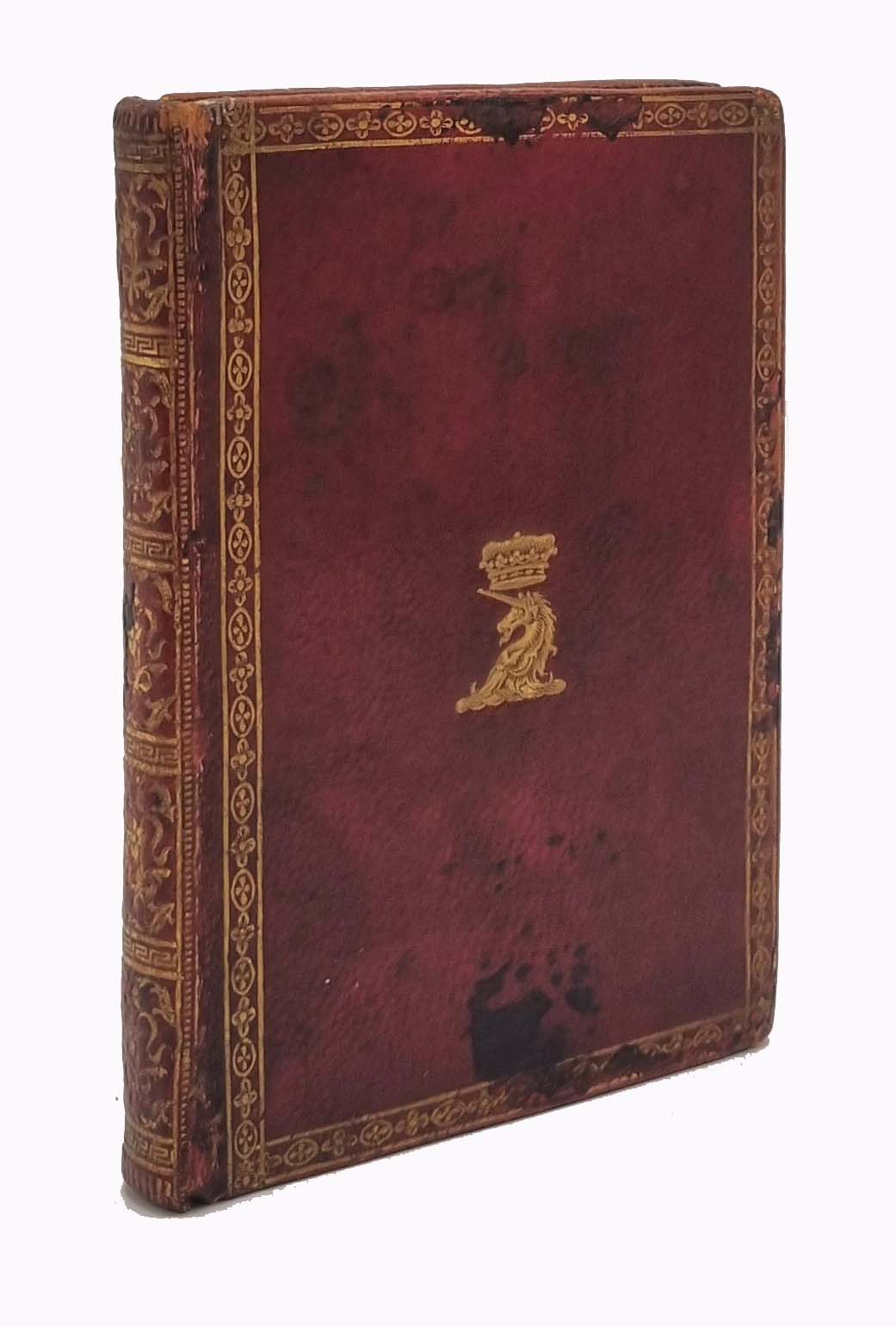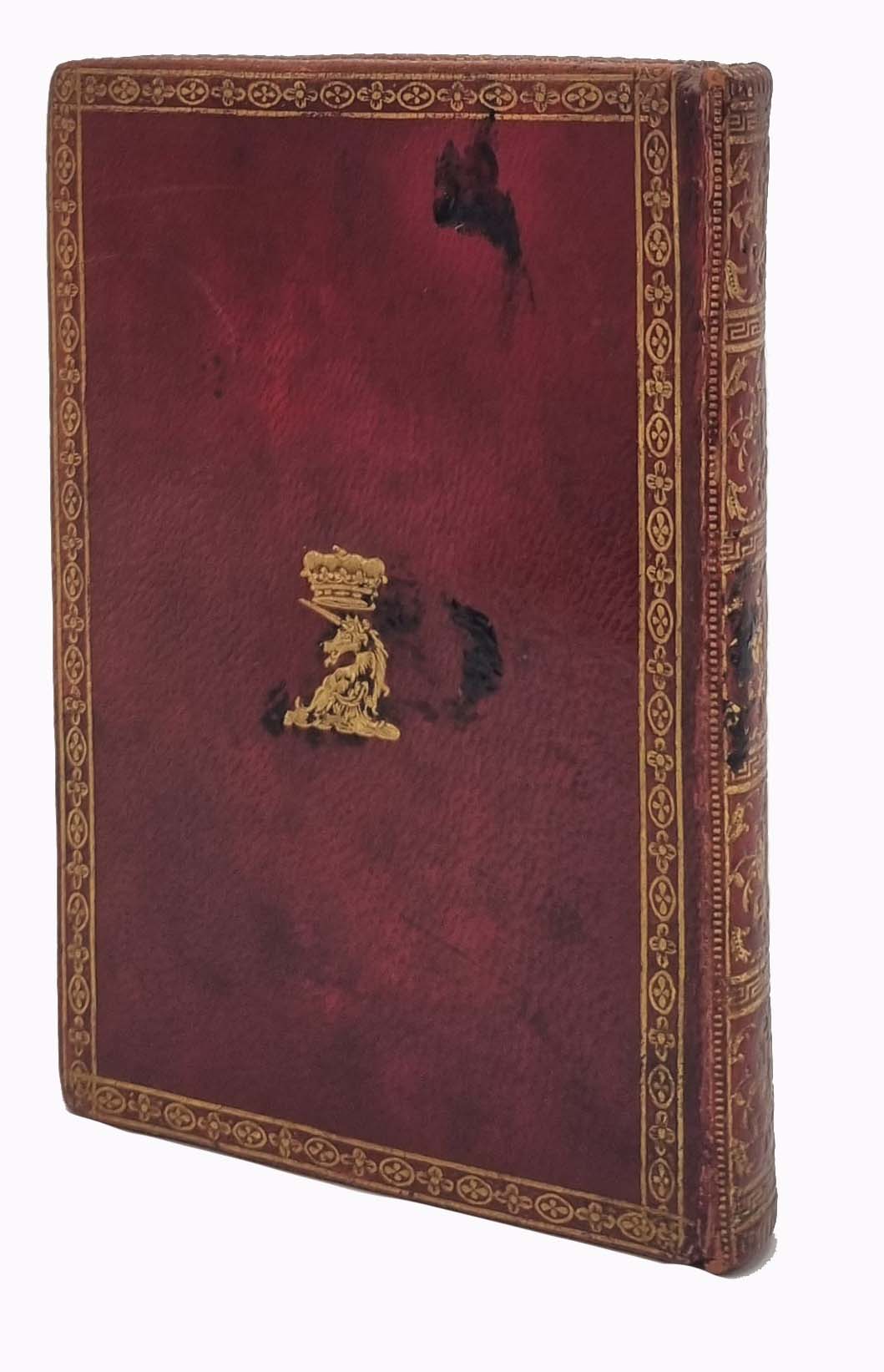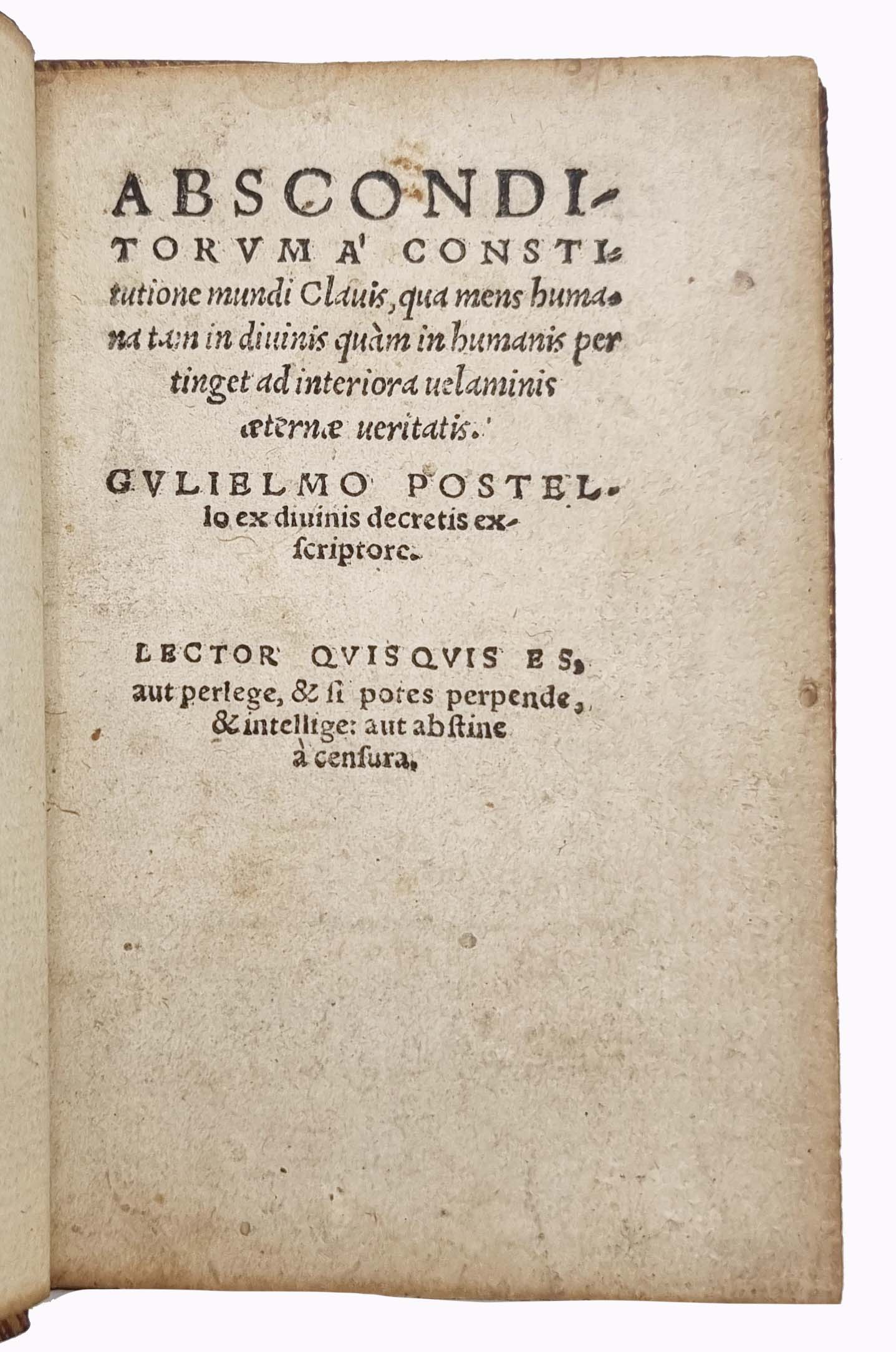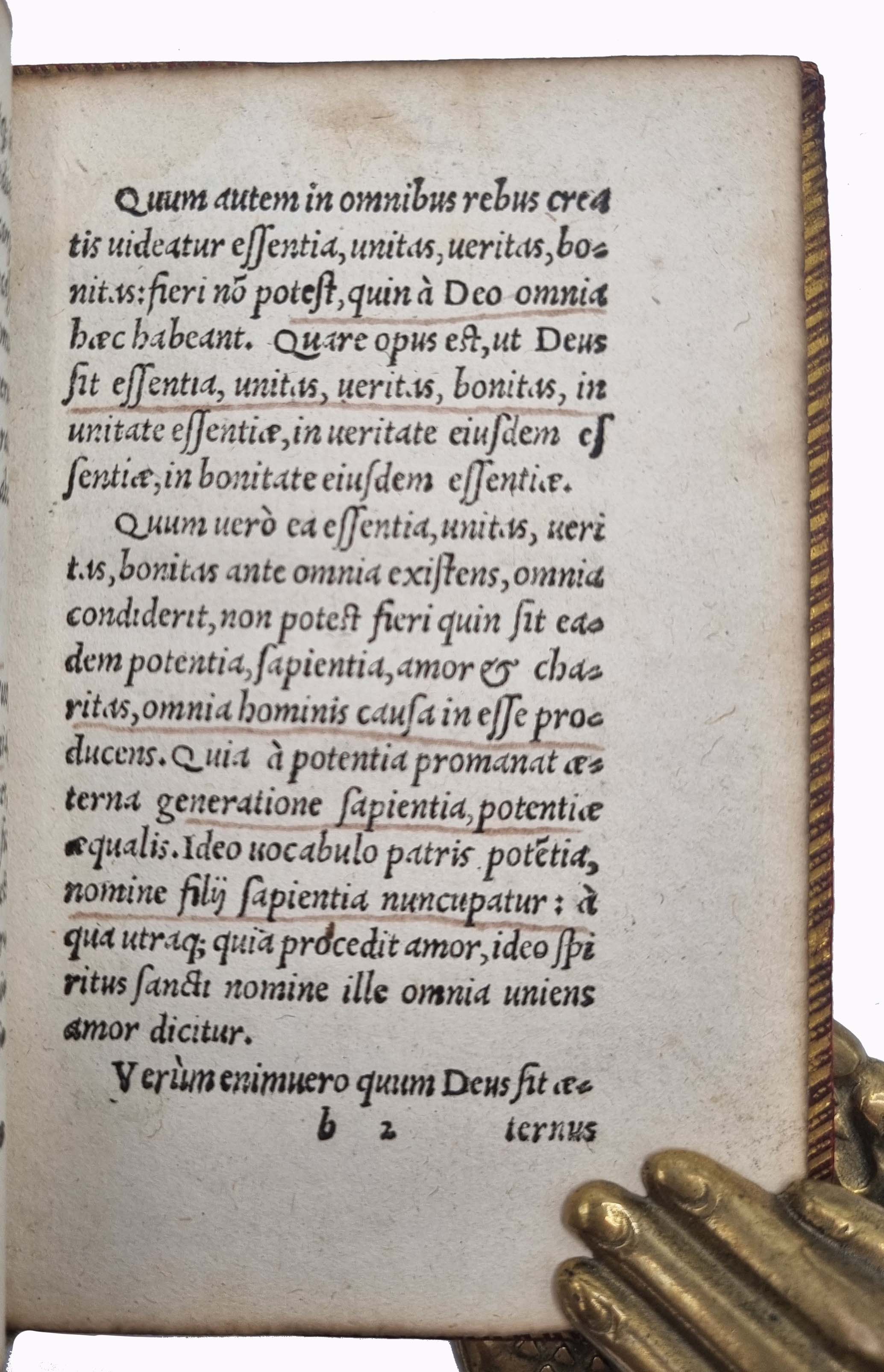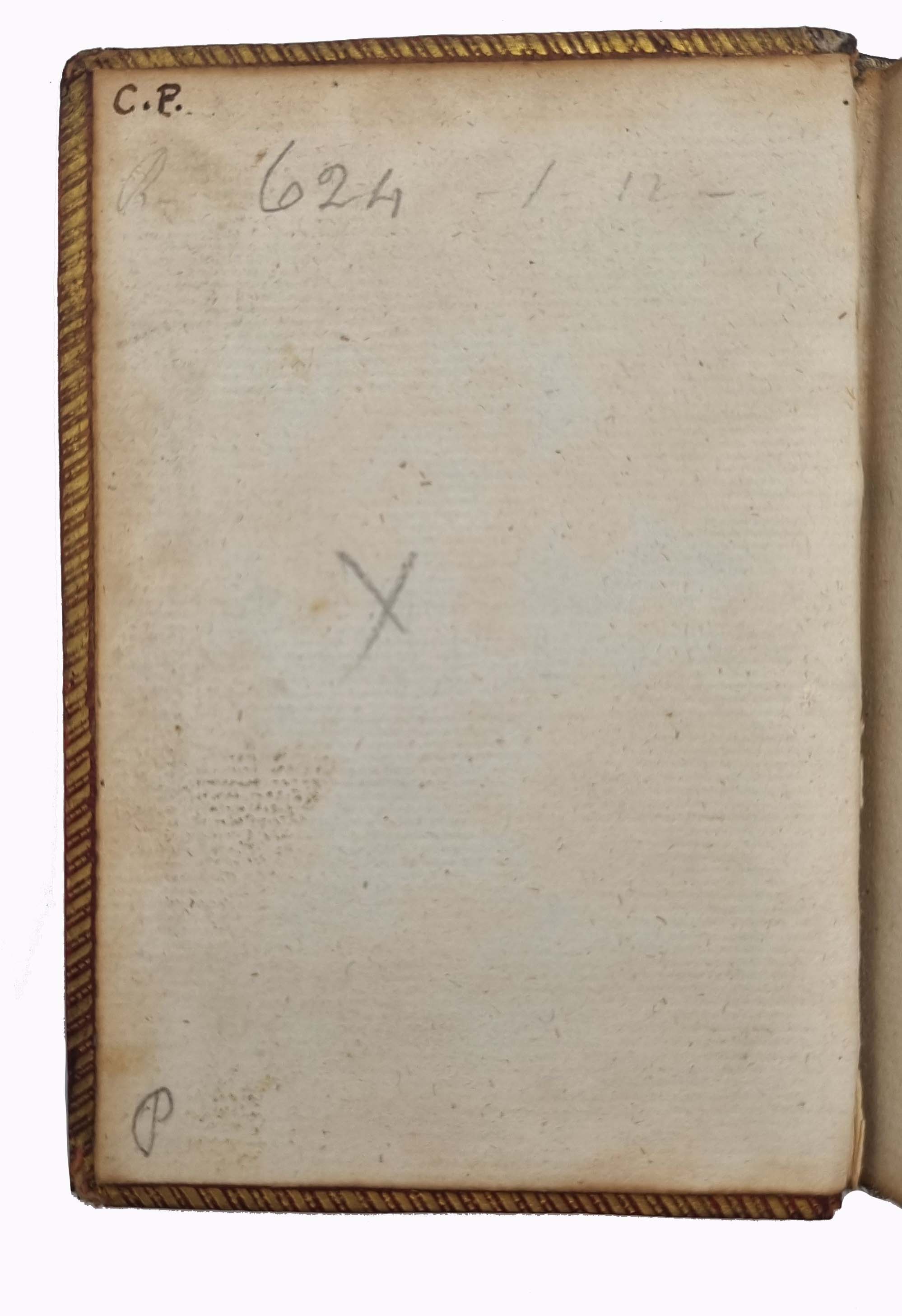POSTEL, Guillaume.
THE ROXBURGHE COPY
Absconditorum a constitutione mundi Clauis.
n.p., n.p., c.1547£4,500.00
FIRST EDITION. 16mo. 52 unnumbered ff. Italic letter, occasional Roman. Light browning to first, slightly toned in places. A good copy in C18 crimson morocco, marbled endpapers, bordered with gilt floral roll, gilt armorial centrepiece of John Ker, 3 rd Duke of Roxburghe to covers, spine gilt to a design of fleurons and Greek fillets, all edges gilt and gauffered, corners, head and foot of spine a bit rubbed, ink splashes to covers and spine. ‘CP’ to verso of ffep, occasional early underlining.
Handsomely bound copy of illustrious provenance, of the rare first edition of this important work on religious mysticism. Formerly in the library of the great bibliophile and collector, John Ker, 3rd Duke of Roxburghe, whose remarkable library was sold in 1812. ‘The sale […] was a most sensational affair and the total of £23,342 was an extraordinary one at the time […] The Roxburghe Club was inaugurated in commemoration […]’ (de Ricci). He owned at least another two editions of this text, the 1552 and 1555. The library was known to include important and scarce books on magic and mysticism; Gilbert Norrell, a key figure in the C19 Revival of English Magic, acquired several books at the sale. The compiler of the catalogue wrote: ‘there is one class of books […], among which there are some very rare ones, that were not purchased by the late Possessor [the 3 rd Duke]. They were collected early in the late century, when free-thinking was much the fashion. William Postel, Giordano Bruno, or Benedict Spinosa, could be no favourites with the late Proprietor, who only valued philosophical writers, in proportion as they improved the morals of mankind’ (‘Catalogue’, I, 16-17).
Guillaume Postel (1510-81), scholar, cosmographer, cartographer and diplomat, had a remarkable knowledge of classical languages as well as Arabic, Syriac and Hebrew. He also provided some of the earliest translations of the Hebrew ‘Zohar’ and ‘Bahir’. In the mid-1540s, in Venice, he became the confessor of Mother Zuana, a mystic from the populace allegedly conversant in ancient religious mysteries, who greatly influenced his views towards millenarianism; for these heretical opinions he was expelled from the city, and later condemned by the Inquisition and imprisoned in Rome. Composed during this prolific period of mystical conversations with the ‘Mater mundi’, ‘Clavis’ presents the ‘key’ (David’s ‘Psalms’) to the ‘hidden structures of the world since Creation’, theorising the spiritual restitution of the universe, with Postel—the first spiritual son of the ‘Mater mundi’—as mediator. Through Christian-Platonic doctrines, and the influence of the Kabbalah, he mentions the four ages of the world, in the last of which all religions (Christian, Muslim,
Hindu and Hebrew) will be universally united, and all shall return to speak the original, Adamitic language of the first age. ‘The idea of a universe unified under a single language, religion and government would remain the leitmotif of Postel’s work throughout his philosophical career’ (Giubilini, 370).
In stock


